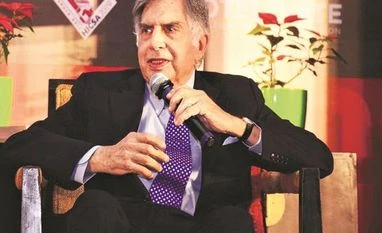Ratan Tata, chairman emeritus of Tata Sons, has invested an undisclosed sum in Ola Electric Mobility (Ola Electric), the ride-hailing firm’s electric vehicle arm, as part of a Series A round of funding.
Tata is also an early investor in Ola’s parent company ANI Technologies.
Ola Electric is currently running several pilots involving charging solutions, battery swapping stations, and deploying vehicles across two, three and four-wheeler segments.
“The electric vehicle ecosystem is evolving dramatically every day, and I believe Ola Electric will play a key role in its growth and development,” said Tata, who made the investment in his personal capacity. “I have always admired the vision of Bhavish Aggarwal (Ola chief executive officer (CEO)) and I’m confident that this will be part of yet another important strategic move into this new business area,” added Tata, who conceived the Nano, one of the world’s cheapest cars.
Tata, who steered India’s biggest industrial group for two decades, is now among India’s top angel investors by the number of deals. In the last few years, he invested in more than 30 start-ups, including companies such as digital payments firm Paytm, auto classifieds platform CarDekho, phone maker Xiaomi and online lingerie brand Zivame. His first automobile start-up investment was Ampere, a Coimbatore-based electric vehicle company founded by Hemalatha Annamalai, in which he invested an undisclosed amount in 2015.
“His investment (in Ola Electric) may be based on the belief that this technology is going to become big and it would be very successful commercially,” said CS Murali, chairman, STEM Cell, SID, Indian Institute of Science, Bengaluru. “Maybe, strategically also, it may probably fit into Tata (Motors’) electric vehicle plans,” said Murali, whose organisation at IISc incubates hi-tech start-ups.
Ola said Tata has been a driving force in the automotive industry, with a hands-on contribution to the innovation, growth, and international reach of Tata Motors.
It said his investment in Ola Electric will bring his deep experience and mentorship to the company’s ambitions to make electric mobility viable at scale. “Tata has been an inspiration and a mentor to me personally in shaping Ola’s journey over the years,” said Aggarwal. “We are privileged to have his guidance and support once again, as we work towards our goal of a million e-vehicles in India by 2021,” he added.
Ola Electric had raised a sum of Rs 400 crore led by several of Ola’s early investors, Tiger Global and Matrix India and others, as part of its first round of investment.
The electric vehicle market in India is forecast to reach nearly $2 billion by FY23, according to TechSci Research report. It is expected to grow on the back of increasing consumer inclination towards electric vehicles coupled with growing concerns associated with rising air pollution levels across the country.
“Electric vehicles are also being given a push by the government which is reflected in its policy. However, for it to be really widespread, one needs a full ecosystem, including manufacturers for batteries and vehicles as well as charging stations. But that would take time to happen,” said Murali of IISc.
Experts say traditional automakers are making investments in new-age companies because with autonomous driving, electrification and shared services, the car industry is going through a massive shift.
Also firms like Tesla, Google and Apple are becoming the new competitors for traditional players such as Daimler and Hyundai.
In March this year, Hyundai Motor Company (Hyundai) and Kia Motors Corporation (Kia) said they will invest $300 million in Bengaluru-based Ola. The agreement will see the three companies extensively collaborate towards developing unique fleet and mobility solutions, building India-specific electric vehicles and infrastructure.
Tata the investor
- Ratan Tata has backed more than 30 companies, including Paytm, CarDekho, Xiaomi and Zivame
- His first automobile start-up investment was Ampere
- Tata’s UC-RNT Fund is an alternative investment fund with a corpus of $300 million
Unlock 30+ premium stories daily hand-picked by our editors, across devices on browser and app.
Pick your 5 favourite companies, get a daily email with all news updates on them.
Full access to our intuitive epaper - clip, save, share articles from any device; newspaper archives from 2006.
Preferential invites to Business Standard events.
Curated newsletters on markets, personal finance, policy & politics, start-ups, technology, and more.
)